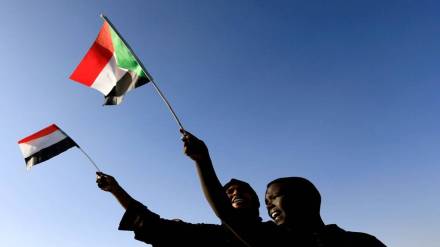By Tarun Agarwal & Pausali Guha
India’s foreign policy towards Africa has witnessed a significant shift in recent years, with a particular focus on strengthening economic ties and enhancing diplomatic influence. Within this context, the bilateral relationship between India and Sudan has witnessed steady growth and diversification. However, the ongoing crisis in Sudan poses challenges to India’s interests and engagements in the region. This article explores the evolving dynamics of the India-Sudan relationship and examines India’s response to the Sudan crisis.
The historical ties between India and Sudan date back to the time of the Nilotic and Indus Valley Civilizations. Indian leaders such as Mahatma Gandhi and Jawaharlal Nehru visited Sudan in the past, establishing a connection between the two nations. In the 1950s, India played a crucial role in Sudan’s first general elections, further deepening their relationship. Since then, bilateral ties have been characterised by diplomatic engagements, high-level visits, and strategic dialogues. India’s support for Sudan’s independence movement and its alignment with Sudan on international platforms have strengthened their diplomatic ties.
Economic Collaboration and Shared Cultural Affinities
Economic cooperation constitutes a significant pillar of the India-Sudan relationship. Sudan has emerged as an important trading partner for India, with bilateral trade witnessing steady growth. Key sectors of collaboration include agriculture, infrastructure development, energy, and healthcare. India’s investments in Sudan’s energy sector, such as ONGC VideshLtd’s substantial investment in the Greater Nile Petroleum Operating Company, have been instrumental in fulfilling India’s growing energy demands. Furthermore, India has extended development assistance to Sudan through grants, scholarships, and capacity-building programs, contributing to Sudan’s socio-economic progress. In addition to this, Cultural exchanges have played a vital role in fostering people-to-people contacts and enhancing cultural understanding between India and Sudan. Festivals, art exhibitions, and cultural performances have served as avenues for promoting cultural diversity and strengthening the social fabric of both nations. These exchanges have enriched bilateral relations and nurtured enduring friendships.
Understanding the Implications of the Ongoing Crisis in Sudan
The ongoing crisis in Sudan, marked by political instability and power struggles, poses significant challenges to both Sudan itself and regional stability. The military coup in 2019 and subsequent events disrupted Sudan’s transition to democracy and raised concerns about the country’s stability. Sudan’s struggling economy, hyperinflation, and massive foreign debt have been further exacerbated by the freezing of international support following the ouster of the interim government. Regional stability is also at stake, given Sudan’s strategic location and resources. The complex regional context, including neighbouring countries experiencing political turmoil, adds to the challenges.
Standing with Sudan: India’s Support in Times of Crisis and the Path to Democracy
India, recognizing the importance of Sudan and the region in its energy security strategy, has a vested interest in protecting its investments, trade, and other interests. In response to the crisis, India sent 25 tonnes of medical aid to Sudan, showcasing its commitment to supporting Sudan during challenging times. However, India must carefully navigate the situation and prioritize the protection of its trade, investments, and interests in the region before making any hasty decisions regarding the recognition of the new regime.
Given India’s self-perception as an advocate for the interests of the global south, it should actively engage in supporting and promoting democratic principles within Sudan. India, in collaboration with the United Nations, should endeavour to assume a proactive role in facilitating the process of democratic transition in Sudan. The realization of democratic stability in Sudan holds paramount significance for India due to its substantial investments in the country and the broader region.
About Authors
Tarun Agarwal: Final Year PhD scholar at Diplomacy and Disarmament Division of the Centre for International Politics, Organisation and Disarmament, School of International Studies, Jawaharlal Nehru University.
Pausali Guha: Third-year PhD scholar at the International Politics Division of the Centre for International Politics, Organisation and Disarmament, School of International Studies, Jawaharlal Nehru University.
Disclaimer: Views expressed are personal and do not reflect the official position or policy of Financial Express Online. Reproducing this content without permission is prohibited.
